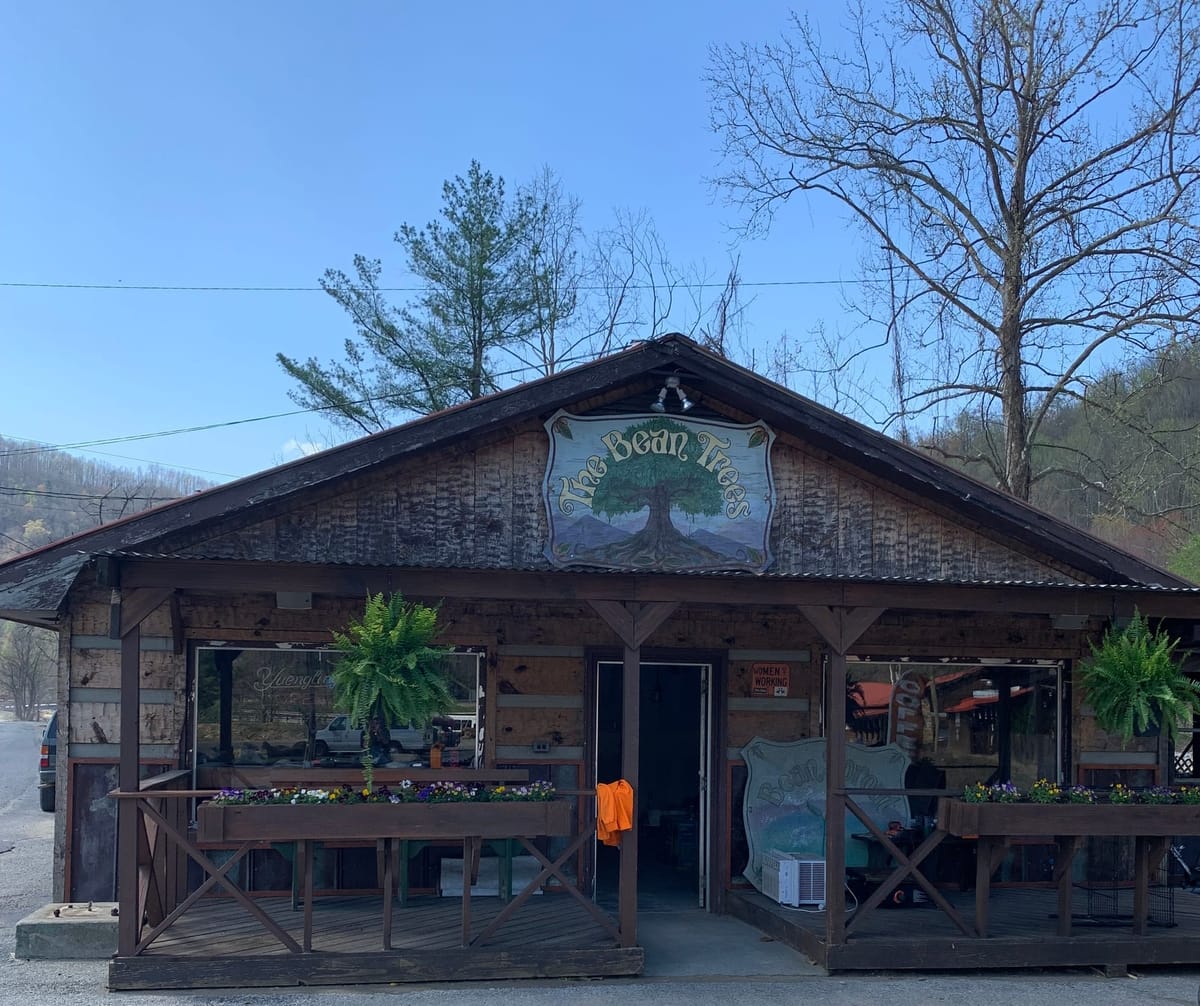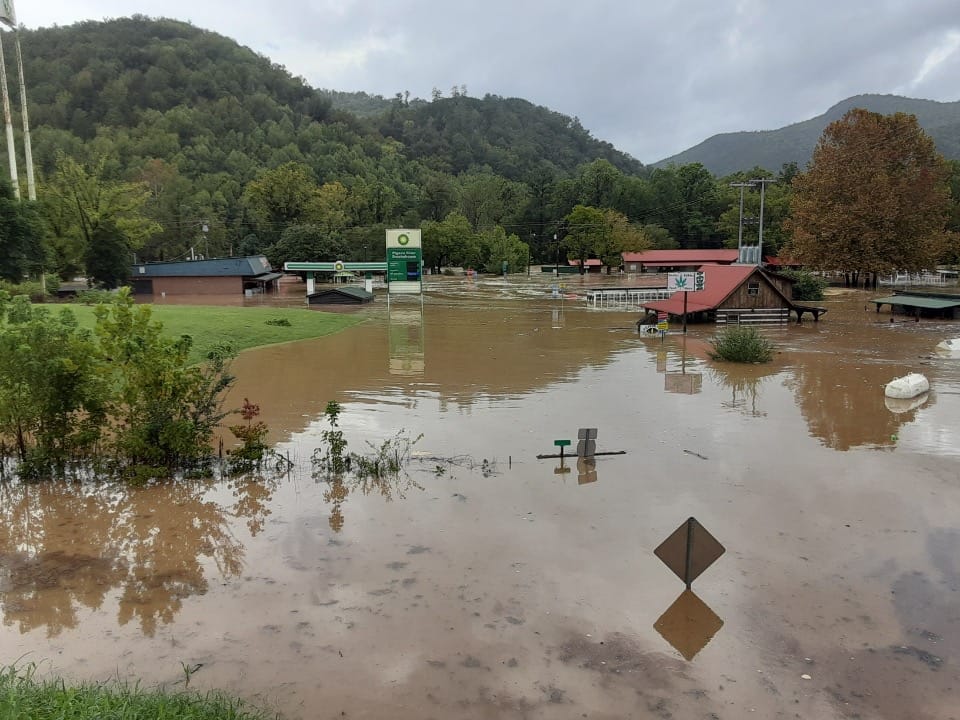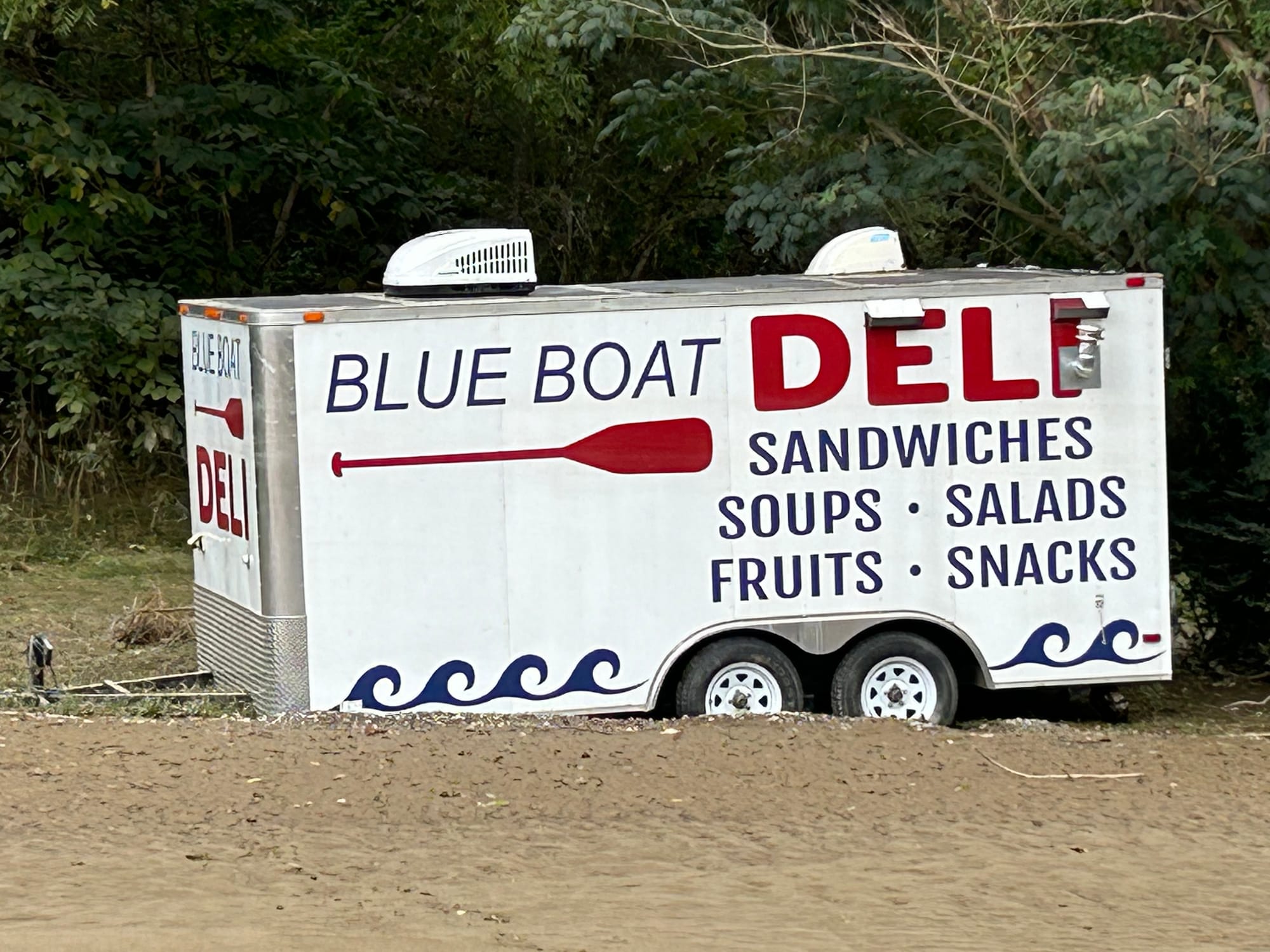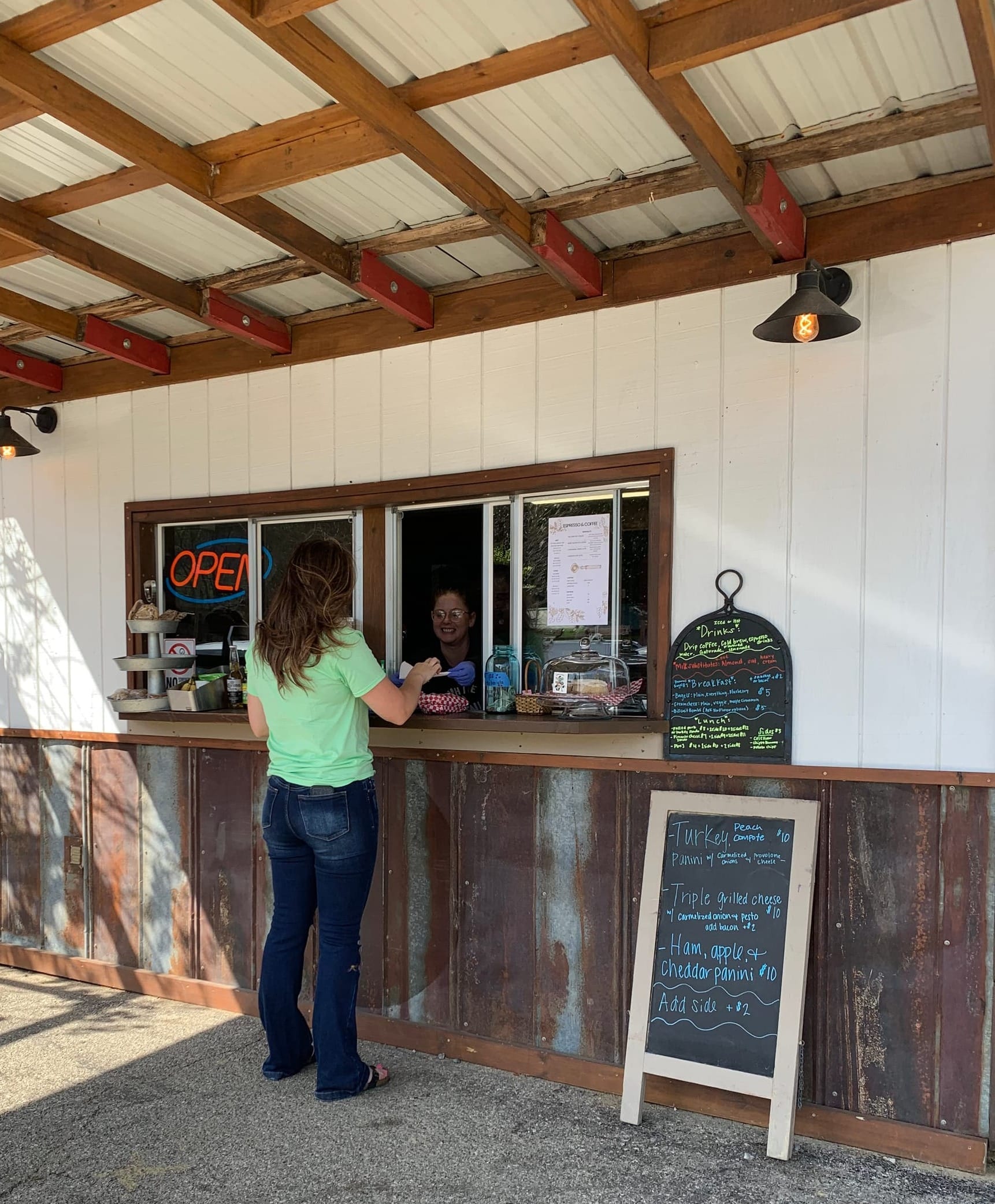Still Here: Hartford's Small Businesses Fight to Recover After the Flood

By Stacey B. Dekker
When Hurricane Helene barreled into Tennessee last September, Michelle Cuellar wasn’t at The Bean Trees, her beloved riverfront restaurant, or The Bean Sprout, her cozy coffee shop. She was in Erwin, helping a friend protect his rafting business from rising floodwaters.
Back home in Hartford, the Pigeon River was rising fast. Her daughter was evacuating animals. Her son was carrying elderly residents to safety, literally on his back. Her businesses were taking on water. And Cuellar could only watch from afar.
That day, the river didn’t just swallow roads and buildings. It swept away a sense of security that local business owners had spent decades building. Months later, the recovery remains slow, exhausting, and often isolating.
“I still have to pay the bills, even though my businesses aren’t paying me,” Cuellar said. “All of us who survived the floods have a type of PTSD, we forgot what it feels like to be normal.”

Just down the road, Jan Johnson was scrambling to save the Blue Boat Deli. Floodwaters nearly carried off her food truck, but her husband Rick tied it to a tree just in time. The truck survived, but it suffered severe damage.
“Rick did everything he could, but the damage was done,” Johnson said. Like Cuellar, she had to rebuild without flood insurance and with little help.

But amid the wreckage, Hartford’s small business community has refused to fold. This tiny mountain town pulled together with a quiet tenacity that no storm can wash away.
“We’re one big family here,” Johnson said, pride shining through. “We help each other and stick together.”
After the storm, competing rafting companies joined forces to clean up downtown. Cuellar turned her basement into a relief hub, distributing food and supplies to neighbors left out of official aid.
“When I saw people sleeping in the cold and going hungry, I couldn’t just stand by,” she said.
Still, good intentions haven’t solved everything.
Cuellar’s attempts to get help through official channels have mostly gone nowhere. Her SBA loan application stalled. FEMA couldn’t offer assistance for her businesses. The U.S. Postal Service, which rents a building from her, handed her a long list of expensive requirements to reopen, including flood insurance she can’t afford.
And local officials? “Only one, Jeremy Faison, came to see if I needed help,” she said. “He took a picture of me and tweeted it. Within 20 minutes, someone donated an espresso machine. He’s the only one still checking in.”
Despite everything, Cuellar keeps going. The Bean Sprout reopened in March, serving roasted coffee, biscuit bombs, turkey paninis, and a friendly place for neighbors to gather.

The Bean Trees still needs work. But she’s not giving up.
There are still empty buildings. Still unanswered calls for help. But there’s also coffee brewing again in Hartford, and people who refuse to be forgotten.
“Support small businesses,” Cuellar said. “Come visit Hartford. Grab a coffee, go rafting, and help us rebuild.”